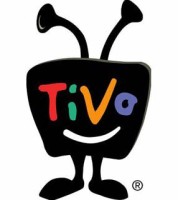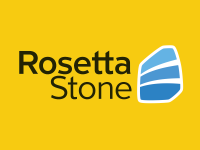Author: Tim Hawthorne
When someone copycats a legitimate DRTV product, everyone loses. Consumers get inferior products and may even get hurt by the counterfeit versions. The original marketer loses sales, incurs legal expenses and winds up with a damaged reputation. The industry as a whole gets a black eye as customers complain about the purchase to friends, family and co-workers.
The hotter the product, the better the odds that it will be counterfeited either domestically or in China, where counterfeiting is big business. The Department of Homeland Security estimates that 81 percent of all counterfeits in the U.S. come from mainland China.
Denise Kovac, president of Full Service Marketing and former COO of Your Baby Can LLC, knows firsthand how persistent and destructive counterfeiters are. As the purveyors of the innovative child development product Your Baby Can Read, Kovac and her team kept close tabs on counterfeiting activity for the popular product.
In one blatant example, Kovac says a company had the gall to put out a copycat version of the product with book pages that were riddled with spelling errors. ‘We started getting customer service calls, asking us to correct the issue,’ Kovac recalls, ‘and it wasn’t even our product.’
Kovac estimates that copycats rob DRTV marketers of 5 percent to 25 percent of their earned sales, mainly because the culprits pay no advertising, marketing, promotional or royalty expenses in order to make their sales.
To get out in front of the problem, Kovac says marketers must pay attention to which companies are selling their items online and sign E-commerce agreements with each of them. Kovac says, ‘The only way to make sure products are all legitimate is by keeping a ‘24/7′ eye on who is selling those items.’
Visiting countries where counterfeiting runs rampant is another strategy. ‘I’ve sourced the copycats all the way back to China,’ Kovac explains. ‘Then, posing as a buyer, I was exposed to more than 100 different SKUs of various products for sale. All of them were counterfeit.’
The confusion that copycatting causes for consumers is a real concern for DRTV marketers. The idea that consumers ‘don’t know’ that they’re buying knock-offs is real. In a 2009 study, British Brands Group concluded that 33 percent of consumers have purchased a copycat, believing they’d actually bought the better-known brand.
Fitness Quest Inc. of Canton, Ohio, has found itself combating multiple counterfeiters. ‘People pick up on the fact that a product is selling well and decide to make a slight change to it and call it their own,’ says Karel Rolli, director of electronic sales for the firm, whose products include Gazelle Gliders and the Ab Lounge. ‘They call it a different name, put it on the market and start selling it.’
Rolli says Fitness Quest has dealt with both domestic and international counterfeiting. One of the worst cases involved an overseas manufacturer that was making the company’s ‘legitimate’ products on one assembly line and the knock-offs on a different line – all under the same roof.
Dealing with copycats is a full-time job for Fitness Quest. ‘We spend a lot of money every year fighting this,’ says Rolli. In some instances, the firm’s customer service team picks up on the illegal activity first. The consumer who calls in for technical support with a product serial number that doesn’t exist in Fitness Quest’s database, for example, lets the firm know that something isn’t right.
Marketers can combat the counterfeiting problem on several different fronts. Unique branding and messages; the use of copyrights and patents whenever possible; the creation of multiple ordering options; and regular product ‘tweaks’ are some of the best anti-counterfeiting strategies. Adopting a proactive, never-back-down stance against the thugs who spend their lives copycatting successful products also goes a long way to thwarting this persistent challenge.
Article Source: http://www.articlesbase.com/branding-articles/why-counterfeiting-hurts-5771116.html
About the Author
Author of over 200 published articles, Tim Hawthorne is Founder, Chairman and CEO of Hawthorne Direct, a full service DRTV and New Media ad agency founded in 1986. Since then, Hawthorne has produced or managed over 800 Direct Response TV campaigns for clients such as Apple, Braun, Nikon,Time-Life, Nissan, Oreck, Bose, and Feed the Children, Tim is a co-founder of the Electronic Retailing Association, has delivered over 100 speeches worldwide and is the author of the definitive DRTV book The Complete Guide to Infomercial Marketing. A cum laude graduate of Harvard, Tim was honored with the prestigious \’Lifetime Achievement Award\’ by the Electronic Retailing Association (ERA) in 2006.

















